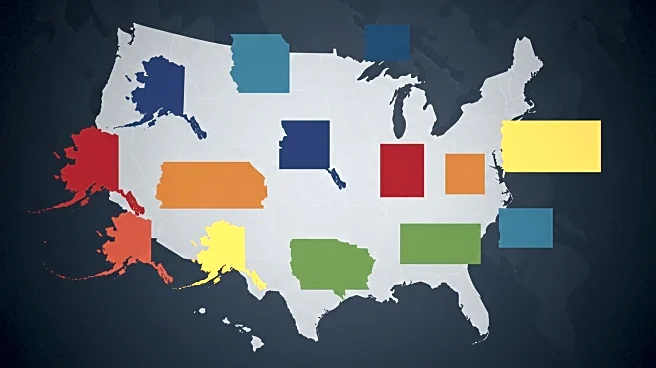What's Happening?
The Tax Foundation has released a study estimating the impact of the One Big Beautiful Bill Act (OBBBA) on federal taxes for individual taxpayers across the United States. The study predicts that the average tax cut per taxpayer will be $3,752 in 2026, with significant variations across states. Wyoming, Washington, and Massachusetts are expected to see the largest average tax cuts, while West Virginia and Mississippi will see the smallest. At the county level, Teton County in Wyoming is projected to have the highest average tax cut at $37,373 per taxpayer. The study also highlights that the tax cuts will decrease in 2030 before rising again in 2035 due to inflation.
Why It's Important?
The OBBBA tax cuts are expected to have a substantial impact on the U.S. economy, potentially creating about 938,000 full-time equivalent jobs over the long term. However, the distribution of these benefits is uneven, with higher-income households seeing more significant gains compared to lower-income households, who may face cuts in programs like Medicaid and SNAP. This disparity could exacerbate income inequality and affect public policy debates on taxation and social welfare. The geographic variation in tax cuts also underscores the differing economic landscapes across states, influencing local economies and potentially affecting migration patterns.
What's Next?
As the tax cuts take effect, policymakers and stakeholders will likely monitor their economic impact closely. Discussions may arise regarding adjustments to the tax code to address disparities and ensure equitable benefits across different income groups. Additionally, the expiration of certain tax provisions in 2030 could prompt legislative action to either extend or modify these measures. The potential job creation and economic growth resulting from the tax cuts will also be key areas of focus for both federal and state governments.











